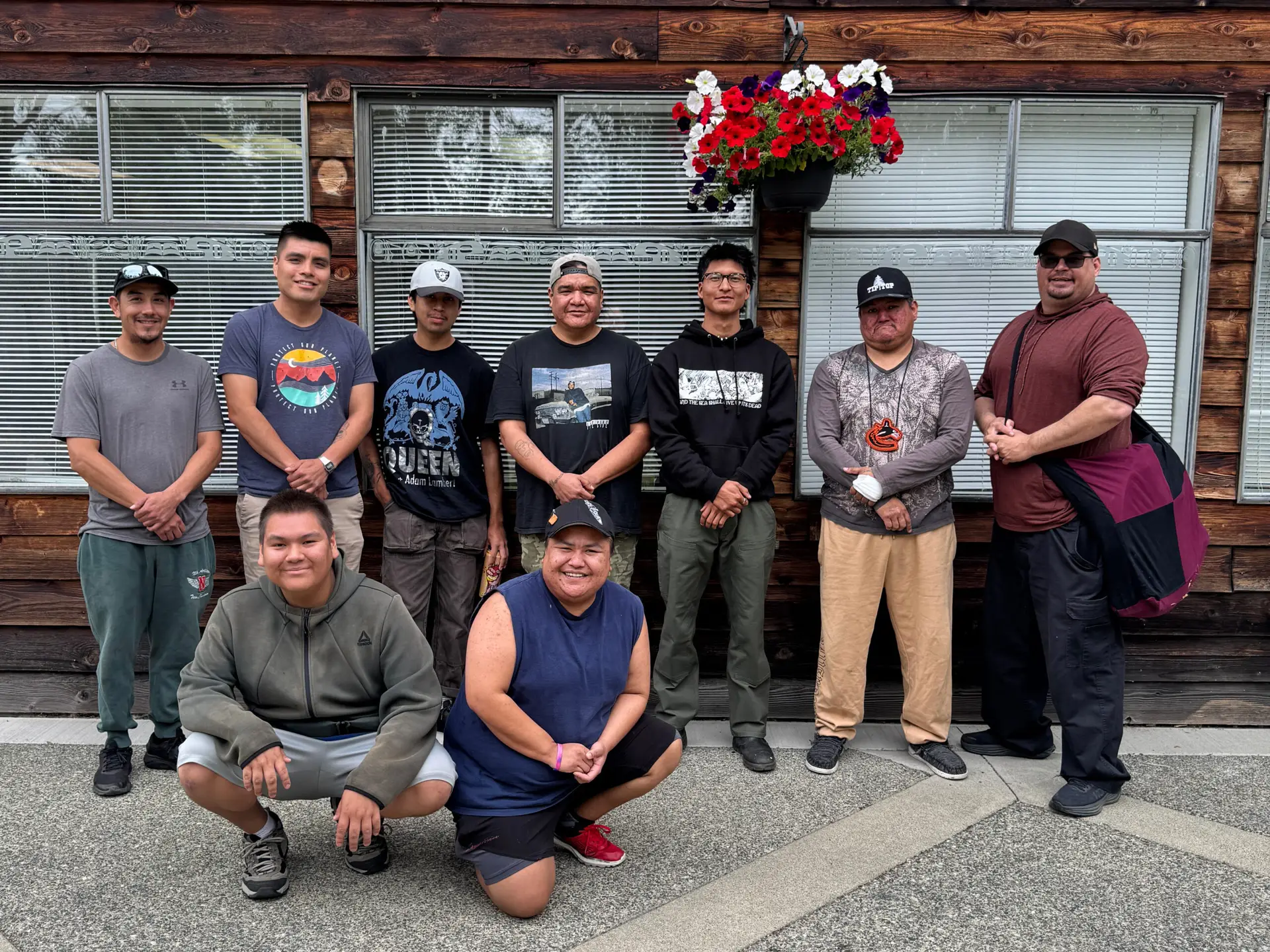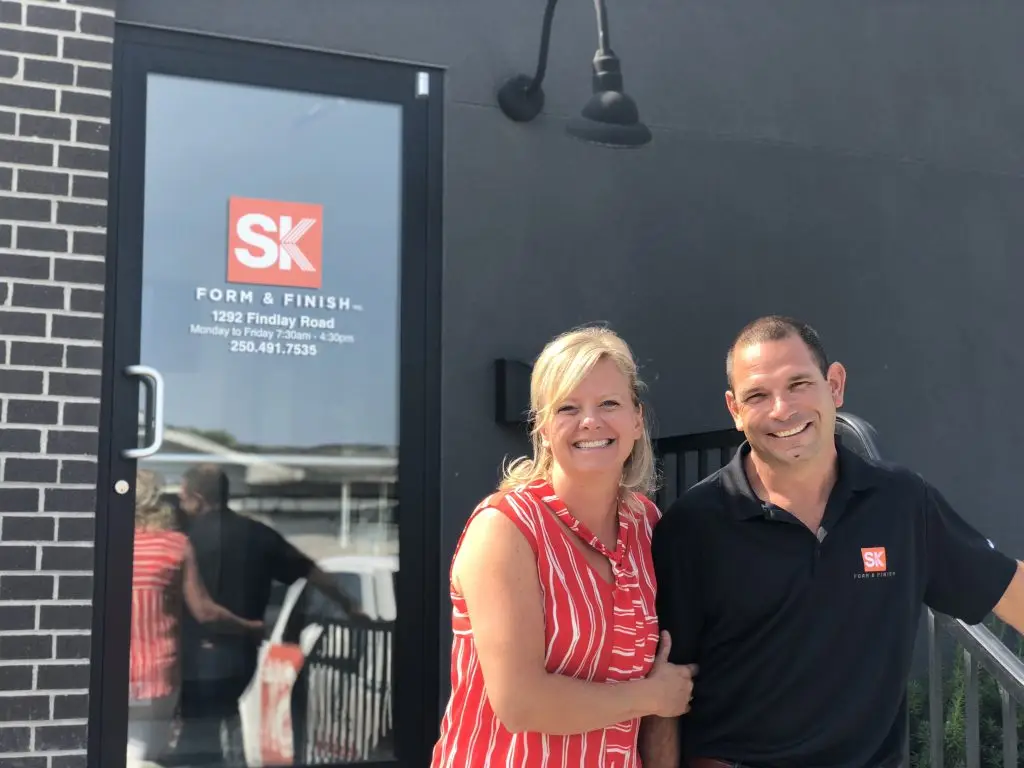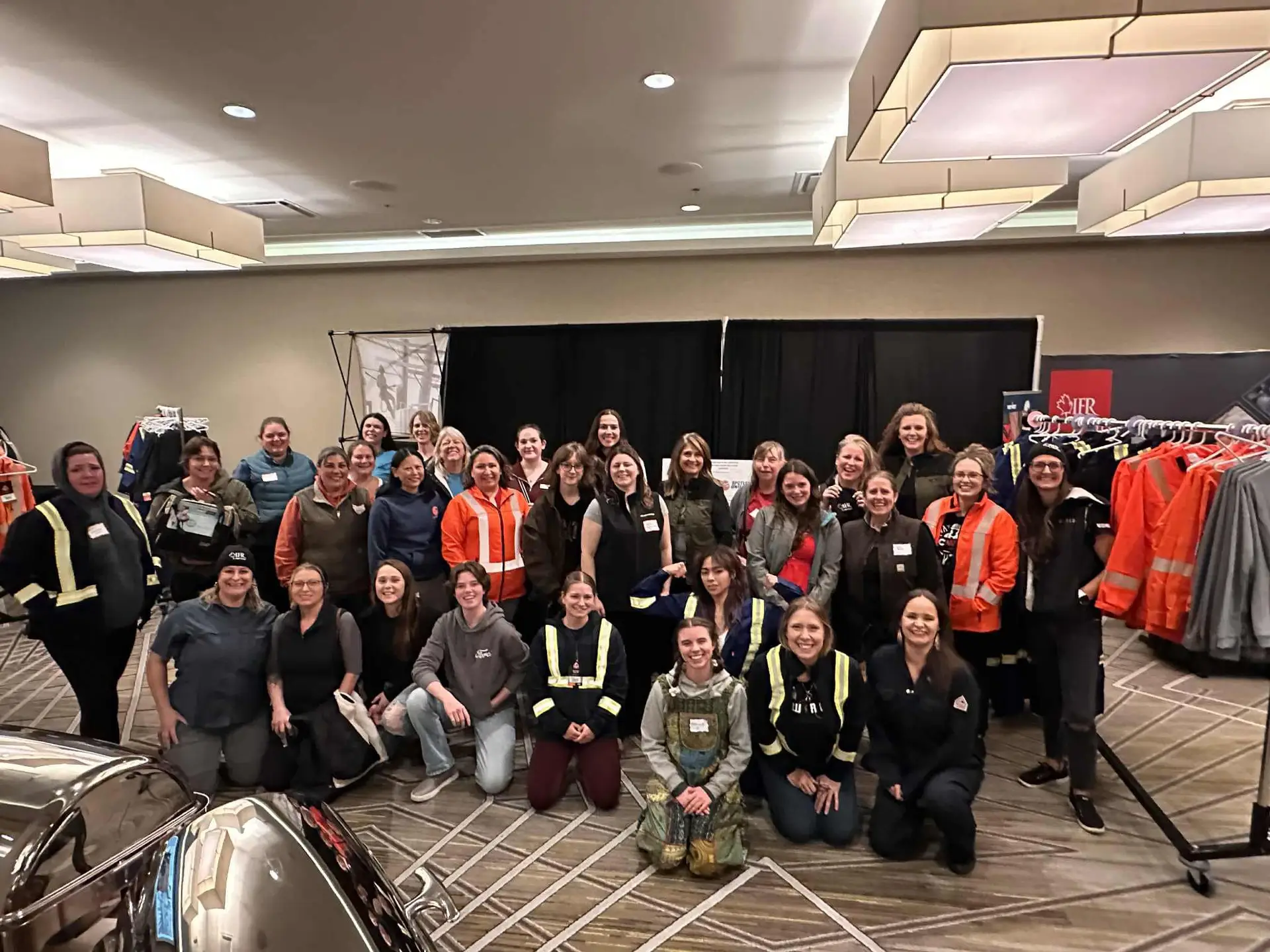October 26, 2023 (Kamloops, BC) – In collaboration with Indigenous communities across British Columbia, the Construction Foundation’s (CFBC) All Roads program continues to develop pathways to success for hundreds of participants through individualized roadmaps developed between participants, community and the All Roads team.
Roadmaps and Skills Training under the All Roads umbrella are delivered individually as well through cohorts and feature a unique makeup and identity specific to participant goals and objectives. While individualized, each All Roads roadmap shares a common objective to work with and alongside participants to successfully achieve their personal and professional goals.
Nuxalk First Nation Cohort
Driven by a community-wide desire and need for more trained maintenance employers, the All Roads team and Nuxalk College supported the implementation of the Level One Residential Building Maintenance Worker (RBMW) Program, which was facilitated by the New Caledonia College. Unique to Nuxalk was the recruitment of the cohort itself. Led by an Education Assistant who was also a local community member, several eventual participants were initially approached through general interactions in the community.
“She basically said, ‘This is what we’re doing. This is what we want to run here in Nuxalk. Do you think you’d be interested in participating,’” explained director of First Nations Initiatives, Michelle Canaday. “That’s literally what happened on a couple of occasions.”
Following screening of over 30 potential participants, an eventual cohort of 12 was formed, with All Roads providing tutoring support, weekly group meetings and wrap around supports as participants progressed towards their goals. Through the progression of the program, participants worked together and held each other accountable for attending meetings, hitting deadlines and roadmap checkpoints. Participants with previous experience in trades such as carpentry also provided support to less experienced members of the cohort as the program progressed.
“The experienced members of the cohort had never really been recognized as having a skill set that would put them in that position, so it was empowering to watch that occur,” added Canaday.
A positive overall experience ended on a high note for Nuxalk cohort, with all twelve participants successfully completing Level One of the RBMW Program.
Blueberry River First Nation Cohort
Blueberry River First Nation’s resilient community has continued to strengthen through challenges such as the COVID pandemic, an event that shaped the formation and overall makeup of Blueberry’s All Roads cohort, as well as a number of accommodations and aspects of delivery throughout the duration of programming.
Participants were delivered laptops to participate in All Roads sessions and training, which featured a number of activities and areas of focus, such as self-reflection exercises from CFBC catalyst Justin Young, Industry ASK (Attitude, Skills, Knowledge) and career exploration sessions, as well as becoming familiarized with technology such as Zoom—an application in its infancy of mass adoption at the time.
Adapting to COVID’s restrictions required additional support systems beyond direct participants. All Roads provided ‘Kid’s Kits’ for participant children containing materials and activities to occupy and engage with while parents participated in All Roads sessions. Again, Canaday witnessed a bond form between the Blueberry group and a level of accountability that grew as everyone became familiarized with processes and schedules.
“It started out with people not having their cameras on when they first started meeting with us to having those cameras turned on,” said Canaday. “At first, we could see their messy hair, housecoat and three or four kids running around. That turned into them showing up for the 10 a.m. sessions dressed and their kids busy doing stuff. Eventually, they were wanting more time with us because we were only doing classes from Monday to Thursday.”
The cohort experienced multiple All Roads firsts, with several graduates securing their Adult Dogwood diplomas following their time in the cohort. It was a development that resulted in more on-the-fly adapting for the All Roads team.
“That was exciting to see because it was the first time that Blueberry River First Nations School actually ever had an adult Dogwood program,” added Canaday. “It was really, really cool and required all hands on deck to be able to support the group through it.”
Kamloops and an extended community cohort
While Blueberry was a prime example of a tight-knit community coming together to form a cohort, Kamloops’ process for identifying participants was nearly the polar opposite with regards to geographic region. Participants were welcomed from Kamloops’ surrounding communities who were not specifically tied to a specific community prior to entry into the program. The result was the creation of a brand new community that individuals thrived within.
“It became the cohort that was needed because the individual participants that we were working with needed to feel like they belonged to something,” explained Canaday. “There was that sense of belonging to something bigger.”
A turn of events saw a female-only, finalized cohort, opening the door for the All Roads team to leverage the unique opportunity and add discussions surrounding female empowerment, culture and other gender-specific topics that would not have taken such precedence in a mixed-gender cohort.
An adaptable approach to both individuals and cohorts participating in the All Roads programs has resulted in multiple success stories for graduates across a broad spectrum of roadmaps, even if the original blueprints to building a successful cohort in some communities have unexpectedly shifted course.
“What’s happened in many cases is that word got out outside of the communities we were working with to other Indigenous groups or organizations,” said Canaday. “For example, a couple of people heard about All Roads through family members or friends and wanted to be a part of it. What started out as a project focused on working with seven First Nation communities has grown over the span of four years to grow largely by word of mouth to numerous communities in the Province and a large number of urban First Nations residents. All Roads has been an organic process.”
For more information on the work being done by CFBC and to donate, please visit constructionfoundation.ca.





